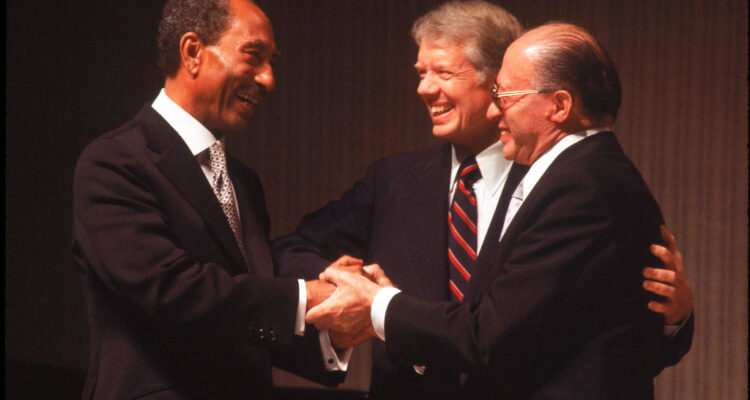Former Democratic US President Jimmy Carter, who is spending the last stage of his life in home hospice care at the age of 98, will be most remembered not only for his humanity and humility but also for his handling of two highly troublesome foreign policy issues that dominated his tenure in office (1977–1981). The Iranian revolution and its outcome confronted him with a humiliating crisis, and his efforts in bringing about a peaceful resolution of the Arab–Israeli conflict failed to secure a just peace for the Palestinians.
Soon after assuming office, Carter was seriously challenged by transformative changes in Iran—one of the pillars of Pax Americana in the Middle East. The pro-Western monarchy of Mohammad Reza Shah was besieged with a revolutionary uprising, resulting in its overthrow and replacement by an Islamic government, led by the Shah’s key religious opponent, Ayatollah Ruhollah Khomeini. The new leadership declared Iran an Islamic republic with an anti-US stance for its support of the Shah’s autocracy and vehement opposition to Israel for its occupation of the Palestinian lands, especially Jerusalem as Islam’s third holiest site.
Initially, Carter sought a modus vivendi with the Islamic regime, but the situation was compounded by a group of Khomeini’s militant supporters overrunning the US embassy in Tehran and taking 53 of its personnel hostage in November 1979. As Khomeini used the development for consolidating power and punishing the US, the ‘hostage crisis’ lasted 444 days or the entire remaining term of Carter’s presidency. The episode, which resulted in a total breakdown of relations between the two sides, proved very humiliating for Carter.
Read the article by Amin Saikal in The Strategist.

